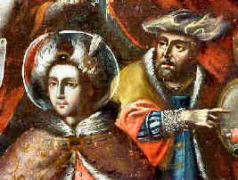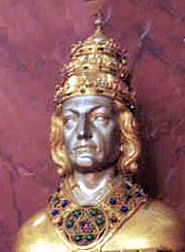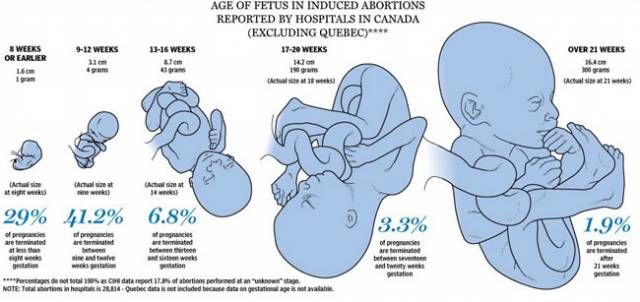24. And he said, Verily I say to you, No prophet is accepted in his own country.
25. But I tell you of a truth, many widows were in Israel in the days of Elias, when the heaven was shut up three years and six months, when great famine was throughout all the land;
26. But to none of them was Elias sent, save to Sarepta, a city of Sidon, to a woman that was a widow.
27. And many lepers were in Israel in the time of Eliseus the prophet; and none of them was cleansed, saving Naaman the Syrian.
AMBROSE; But the Savior purposely excuses Himself for not working miracles in His own country, that no one might suppose that love of country is a thing to be lightly esteemed by us. For it follows, But he says, Verily I say to you, that no prophet is accepted in his own country.
CYRIL; As if He says, You wish me to work many miracles among you, in whose country I have been brought up, but I am aware of a very common failing in the minds of many. To a certain extent it always happens, that even the very best things are despised when they fall to a man's lot, not scantily, but ever at his will. So it happens also with respect to men. For a friend who is ever at hand, does not meet with the respect due to him.
THEOPHYL; Now that Christ is called a Prophet in the Scriptures, Moses bears witness, saying, God shall raise up a Prophet to you from among your brethren.
AMBROSE; But this is given for an example, that in vain can you expect the aid of Divine mercy, if you grudge to others the fruits of their virtue. The Lord despises the envious, and withdraws the miracles of His power from them that are jealous of His divine blessings in others. For our Lord's Incarnation is an evidence of His divinity, and His invisible things are proved to us by those which are visible. See then what evils envy produces. For envy a country is deemed unworthy of the works of its citizen, which was worthy of the conception of the Son of God.
ORIGEN; As far as Luke's narrative is concerned, our Lord is not yet said to have worked any miracle in Capernaum. For before He came to Capernaum, He is said to have lived at Nazareth. I cannot but think therefore that in these words, "whatsoever we have heard done in Capernaum," there lies a mystery concealed, and that Nazareth is a type of the Jews, Capernaum of the Gentiles. For the time will come when the people of Israel shall say, "The things which you have shown to the whole world, show also to us." Preach your word to the people of Israel, that then at least, when the fullness of the Gentiles has entered, all Israel may be saved. Our Savior seems to me to have well answered, No prophet is accepted in his own country, but rather according to the type than the letter; though neither was Jeremiah accepted in Anathoth his country, nor the rest of the Prophets. But it seems rather to be meant that we should say, that the people of the circumcision were the countrymen of all the Prophets. And the Gentiles indeed accepted the prophecy of Jesus Christ, esteeming Moses and the Prophets who preached of Christ, far higher than they who would not from these receive Jesus.
AMBROSE; By a very apt comparison the arrogance of envious citizens is put to shame, and our Lord's conduct shown to agree with the ancient Scriptures. For it follows, But I tell you of a truth, many widows were in Israel in the days of Elias: not that the days were his, but that he performed his works in them.
CHRYS. He himself, an earthly angel, a heavenly man, who had neither house, nor food, nor clothing like others, carries the keys of the heavens on his tongue. And this is what follows, When the heaven was shut. But as soon as he had closed the heavens and made the earth barren, hunger reigned and bodies wasted away, as it follows, when there was as famine through the land.
BASIL; For when he beheld the great disgrace that arose from universal plenty, he brought a famine that the people might fast, by which he checked their sin which was exceeding great. But crows were made the ministers of food to the righteous, which are wont to steal the food of others.
CHRYS. But when the stream was dried up by which the cup of the righteous man was filled, God said, Go to Sarepta, a city of Sidon; there I will command a widow woman to feed you. As it follows, But to none of them was Elias sent, save to Sarepta, a city of Sidon, to a woman that was a widow. And this was brought to pass by a particular appointment of God. For God made him go a long journey, as far as Sidon, in order that having seen the famine of the country he should ask for rain from the Lord. But there were many rich men at that time, but none of them did any thing like the widow. For in the respect shown by the woman toward the prophet, consisted her riches not of lands, but of good will.
AMBROSE; But he says in a mystery, "In the days of Elias," because Elias brought the day to them who saw in his works the light of spiritual grace, and so the heaven was opened to them that beheld the divine mystery, but was shut when there was famine, because there was no fruitfulness in acknowledging God. But in that widow to whom Elias was sent was prefigured a type of the Church.
ORIGEN; For when a famine came upon the people of Israel, i.e. of hearing the word of God, a prophet came to a widow, of whom it is said, For the I desolate has many more children than she which has an husband; and when he had come, he multiplies her bread and her nourishment.
THEOPHYL; Sidonia signifies a vain pursuit, Sarepta fire, or scarcity of bread. By all which things the Gentiles are signified, who, given up to vain pursuits, (following gain and worldly business,) were suffering from the flames of fleshly lusts, and the want of spiritual bread, until Elias, (i.e. the word of prophecy,) now that the interpretation of the Scriptures had ceased because of the faithlessness of the Jews, came to the Church, that being received into the hearts of believers he might feed and refresh them.
BASIL; Every widowed soul, bereft of virtue and divine knowledge, as soon as she receives the divine word, knowing her own failings, learns to nourish it with the bread of virtue, and to water the teaching of virtue from the fountain of life.
ORIGEN; He cites also another similar example, adding, And there were many lepers in Israel at the time of Eliseus the Prophet, and none of them were cleansed but Naaman the Syrian, who indeed was not of Israel.
AMBROSE; Now in a mystery the people pollute the Church, that another people might succeed, gathered together from foreigners, leprous indeed at first before it is baptized in the mystical stream, but which after the sacrament of baptism, washed from the stains of body and soul, begins to be a virgin without spot or wrinkle.
THEOPHYL; For Naaman, which means beautiful, represents the Gentile people, who is ordered to be washed seven times, because that baptism saves which the seven-fold Spirit renews. His flesh after washing began to appear as a child's, because grace like a mother begets all to one childhood, or because he is conformed to Christ, of whom it is said, to us a Child is born.
28. And all they in the synagogue, when they heard these things, were filled with wrath,
29. And rose up, and thrust him out of the city, and led him to the brow of the hill whereon their city was built, that they might cast him down headlong.
30. But he passing through the midst of them went his way.
CYRIL; He convicted them of their evil intentions, and therefore they are enraged, and hence what follows, And all they in the synagogue when they heard these things were filled with wrath. Because He had said, This day is this prophecy fulfilled, they thought that He compared Himself to the prophets, and are therefore enraged, and expel Him out of their city, as it follows, And they rose up, and cast him out.
AMBROSE; It can not be wondered at that they lost their salvation who cast the Savior out of their city. But the Lord who taught His Apostles by the example of Himself to be all things to all men, neither repels the willing, nor chooses the unwilling; neither struggles against those who cast Him out, nor refuses to hear those who supplicate Him. But that conduct was the result of no slight enmity, which, forgetful of the feelings of fellow citizens, converts the causes of love into the bitterest hatred. For when the Lord Himself was extending His blessings among the people, they began to inflict injuries upon Him, as it follows, And they led him to the brow of the hill, that they might cast him down.
THEOPHYL; Worse are the Jewish disciples than their master the Devil. For he says, Cast yourself down; they actually attempt to cast Him down. But Jesus having suddenly changed His mind, or seized with astonishment, went away, since He still reserves for them a place of repentance. Hence it follows, He passing through the midst of them went his way.
CHRYS. Herein He shows both His human nature and His divine. To stand in the midst of those who were plotting against Him, and not be seized, betokened the loftiness of His divinity; but His departure declared the mystery of the dispensation, i.e. His incarnation.
AMBROSE; At the same time we must understand that this bodily endurance was not necessary, but voluntary. When He wills, He is taken, when He wills, He escapes. For how could He be held by a few who was not held by a whole people? But He would have the impiety to be the deed of the many, in order that by a few indeed He might be afflicted, but might die for the whole world. Moreover, He had still rather heal the Jews than destroy them, that by the fruitless issue of their rage they might be dissuaded from wishing what they could not accomplish.
THEOPHYL; The hour of His Passion had not yet come, which was to be on the preparation of the Passover, nor had He yet come to the place of His Passion, which not at Nazareth, but at Jerusalem, was prefigured by the blood of the victims; nor had He chosen this kind of death, of whom it was prophesied that He should be crucified by the world.
Catena Aurea Luke 4



 The nobles of Hungary, dissatisfied with their king, Matthias Corvinus, in 1471 begged the King of Poland to allow them to place his son Casimir on the throne. The saint, at that time not fifteen years old, was very unwilling to consent, but in obedience to his father he went to the frontier at the head of an army. There, hearing that Matthias had himself assembled a large body of troops, and finding that his own soldiers were deserting in large numbers because they could not get their pay, he decided upon the advice of his officers to return home. The knowledge that Pope Sixtus IV had sent an embassy to his father to deter him from the expedition made the young prince carry out his resolution with the firmer conviction that he was acting rightly. King Casimir, however, was greatly incensed at the failure of his ambitious projects and would not permit his son to return to Cracow, but relegated him to the castle of Dobzki. The young man obeyed and remained in confinement there for three months. Convinced of the injustice of the war upon which he had so nearly embarked, and determined to have no further part in these internecine conflicts which only facilitated the further progress into Europe of the Turks, St Casimir could never again be persuaded to take up arms though urged to do so by his father and invited once more by the disaffected Hungarian magnates. He returned to his studies and his prayers, though for a time he was viceroy in Poland during an absence of his father. An attempt was made to induce him to marry a daughter of the Emperor Frederick III, but he refused to relax the celibacy he had imposed on himself.
The nobles of Hungary, dissatisfied with their king, Matthias Corvinus, in 1471 begged the King of Poland to allow them to place his son Casimir on the throne. The saint, at that time not fifteen years old, was very unwilling to consent, but in obedience to his father he went to the frontier at the head of an army. There, hearing that Matthias had himself assembled a large body of troops, and finding that his own soldiers were deserting in large numbers because they could not get their pay, he decided upon the advice of his officers to return home. The knowledge that Pope Sixtus IV had sent an embassy to his father to deter him from the expedition made the young prince carry out his resolution with the firmer conviction that he was acting rightly. King Casimir, however, was greatly incensed at the failure of his ambitious projects and would not permit his son to return to Cracow, but relegated him to the castle of Dobzki. The young man obeyed and remained in confinement there for three months. Convinced of the injustice of the war upon which he had so nearly embarked, and determined to have no further part in these internecine conflicts which only facilitated the further progress into Europe of the Turks, St Casimir could never again be persuaded to take up arms though urged to do so by his father and invited once more by the disaffected Hungarian magnates. He returned to his studies and his prayers, though for a time he was viceroy in Poland during an absence of his father. An attempt was made to induce him to marry a daughter of the Emperor Frederick III, but he refused to relax the celibacy he had imposed on himself.  St. Lucius, according to the "Liber Pontificalis," was a Roman, the son of Porphyrius. When he succeeded St. Comelius, the persecution of Trebonianus Gallus was still raging, and the new Pope was exiled. Soon, however, the persecution died away and Lucius was able to return to Rome. There is extant a letter from St. Cyprian congratulating the Pope on his return from exile and praising him for his confession of Christ.
St. Lucius, according to the "Liber Pontificalis," was a Roman, the son of Porphyrius. When he succeeded St. Comelius, the persecution of Trebonianus Gallus was still raging, and the new Pope was exiled. Soon, however, the persecution died away and Lucius was able to return to Rome. There is extant a letter from St. Cyprian congratulating the Pope on his return from exile and praising him for his confession of Christ. 


